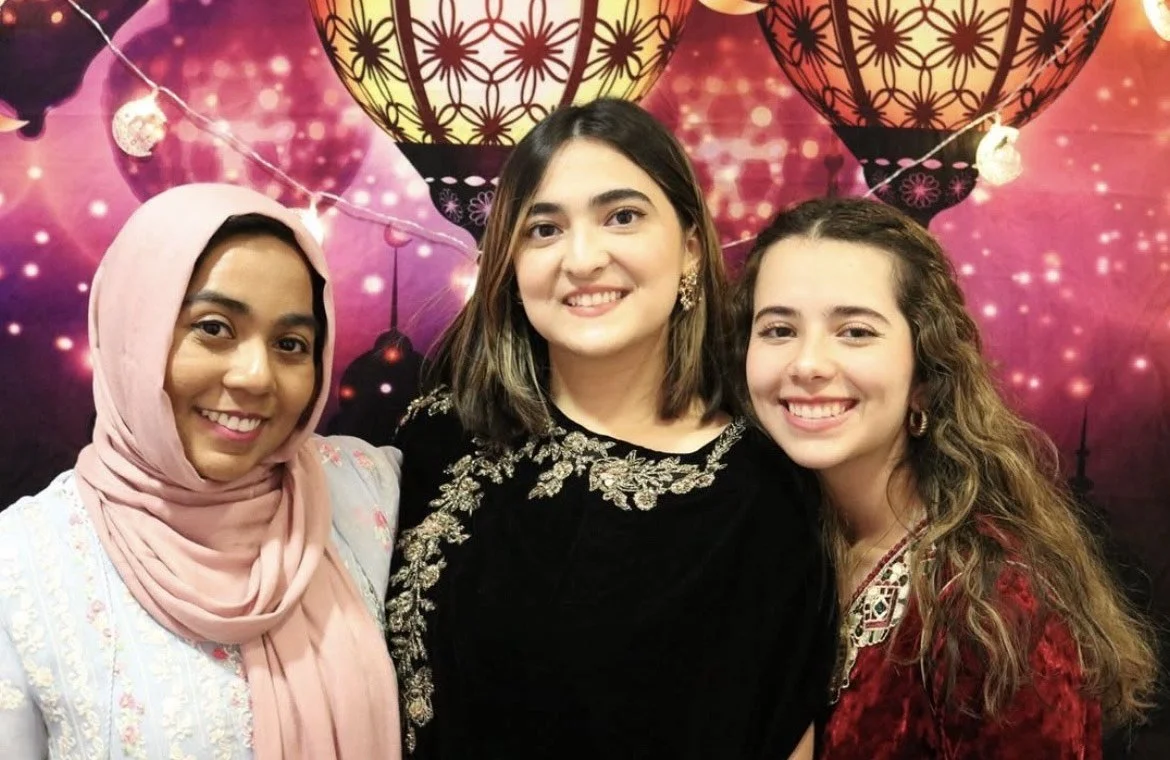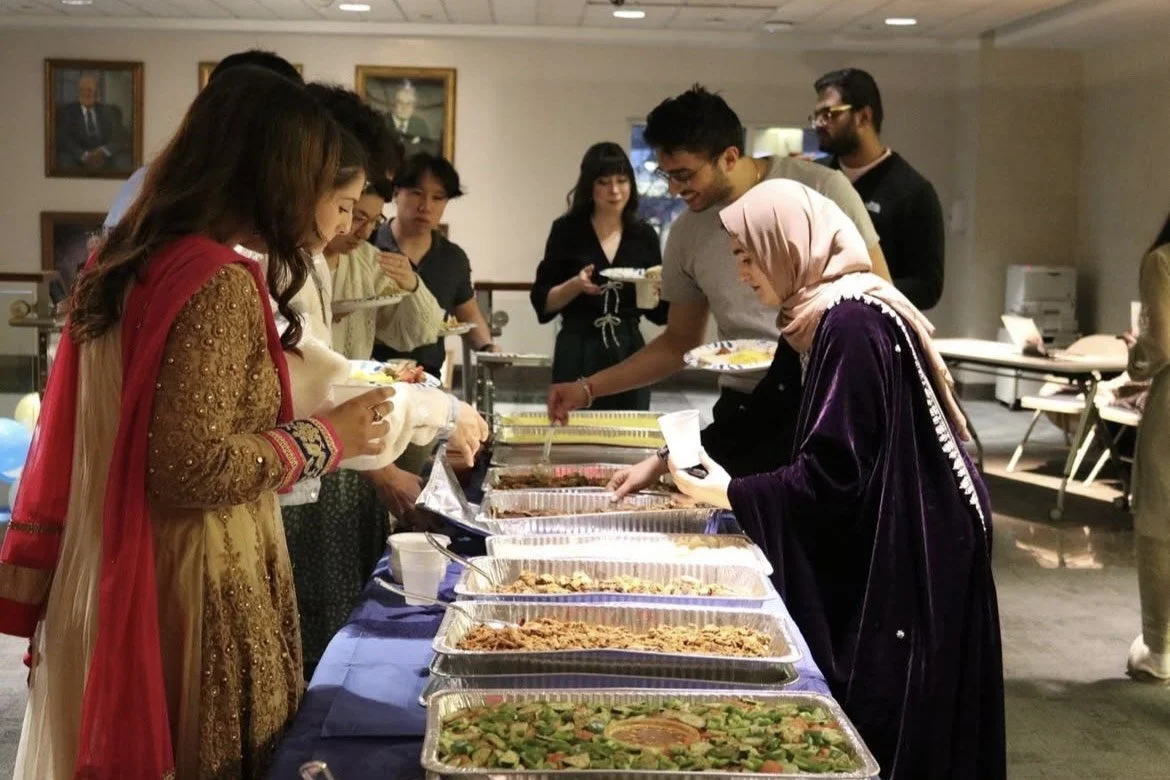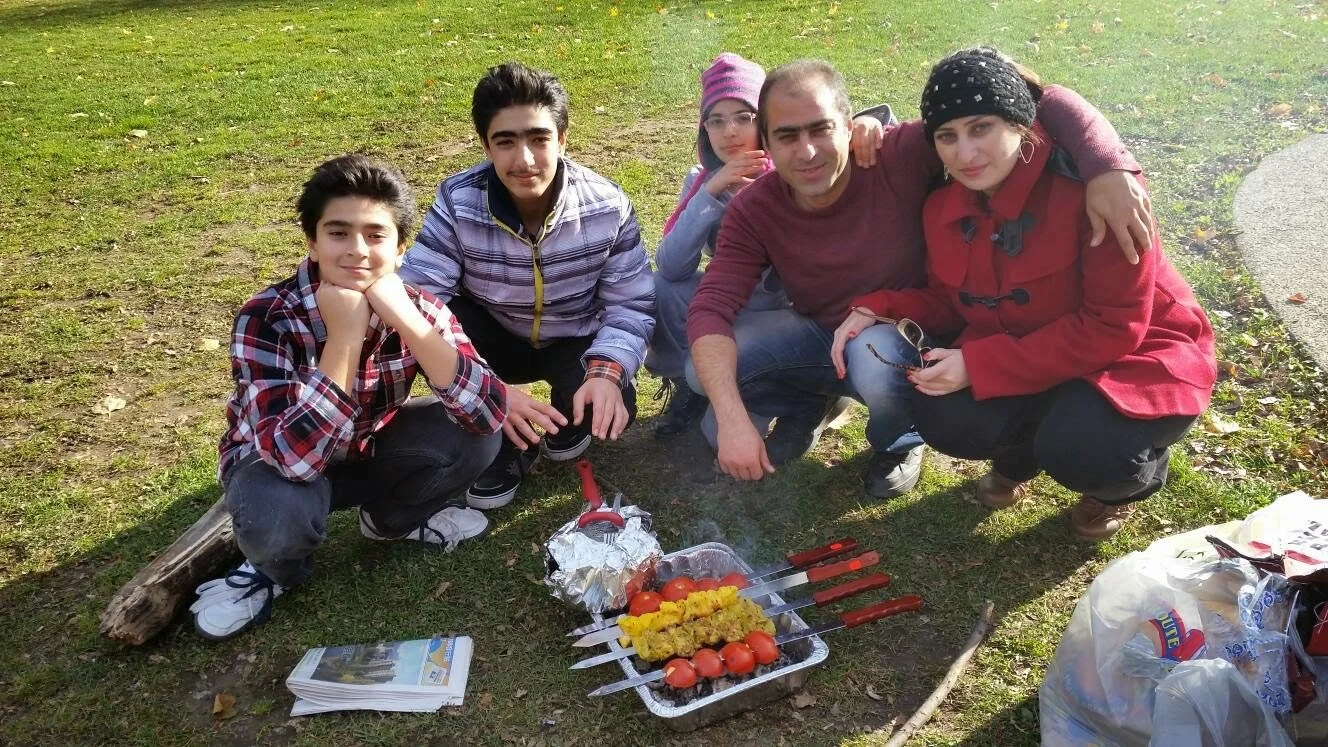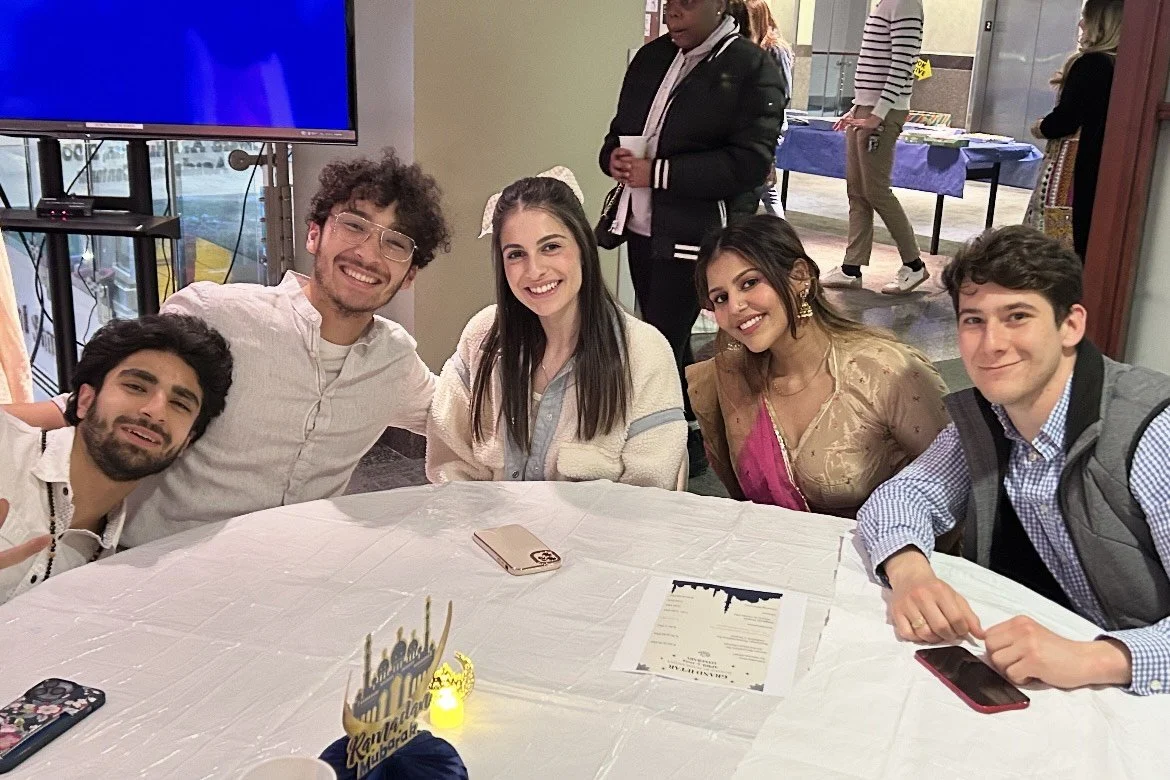For Muslim American Immigrants, Celebrating Ramadan in Philadelphia Brings Joy and Sometimes Isolation
Elissa Odeh
With the sighting of the crescent moon in the sky, Ramadan began on February 28 in the United States. Ramadan is the ninth month of the lunar calendar and the holiest month of the year for Muslims, in which they fast from dawn until sunset, abstaining from food and drink and breaking their fast with a meal known as iftar.
While Muslims around the world prepare for a month of fasting, worship and prayer, Philadelphia’s Muslims reminisce over their memories of Ramadan in their home countries. Al-Bustan News reached out to local immigrants from Syria, Yemen, Iran and Saudi Arabia to learn more about how they celebrated, and continue to celebrate the holy month.
We spoke with Syrian American Hadba Alrachdi, 49, who described the warm ambiance of Ramadan in Aleppo where she grew up. She recalled how ornate lanterns lit the streets while families hung crescent moons and stars on their doors and balconies. Markets and shops displayed Ramadan Kareem banners and stocked their shelves with Ramadan’s beloved treats like dates and Jallab (icy juice containing date syrup, grape molasse, rose water and smokiness from incense-infused water with pine nuts and raisins on the top).
With the adhan (call to prayer) of the maghrib (just after sunset), families and friends would gather together to eat iftar.Traditionally, they broke their fast starting with dates and water before moving to the main meal. Neighbors would also cook a dish and share it with one another.
Children attended an iftar at the Grand Umayyad Mosque in Aleppo, Syria last year. (Photo by Monsef Memari/Xinhua)
“One of the greatest things about Ramadan is the companionship, especially during iftar,” said Alrachdi. “We always have to gather around one table and share iftar together with our loved ones.”
Ramadan also fostered connections amongst Syria’s religiously diverse population. “People from different religions and denominations would take to the streets before the maghrib to hand out dates and water to Muslims coming back late from their jobs to break their fast,” Alrachdi told Al-Bustan News.
Now living in Newtown Square with her three daughters, they attempt to imbue Ramadan with the spirit of ‘home.’ They put up Ramadan decorations and aim to share iftar together despite their busy schedules, often making their favorite Ramadan staples like sambousa, a beef or chicken-stuffed pastry and qatayef, a dessert of cheese or nut-stuffed pancakes soaked in syrup.
Alrachdi’s daughter Sima Bobaky, 23, was born and raised in Riyadh, Saudi Arabia where her parents moved from Syria. To her, Ramadan in Saudi Arabia was highlighted by late night gatherings.
Sima Bobaky (at right) attended a communal iftar last Ramadan at her school, the Philadelphia College of Osteopathic Medicine. Photo courtesy of Bobaky.
“My favorite memories of Ramadan were the nights I spent with my cousins and friends, laughing and playing card games until sunrise,” Bobaky told Al-Bustan News. “I miss those nights the most.”
Pulling all-nighters was only possible due to Saudi Arabia’s accommodations for fasting, as the country slowed its pace, shortening work and school days to allow time for rest and night gatherings. People often stayed awake untilsuhoor (the morning meal Muslims eat before fasting).
Now a medical student at the Philadelphia College of Osteopathic Medicine (PCOM), located in the city’s Wynnefield Heights neighborhood, Bobaky attempts to balance fasting and academic responsibilities. Due to her busy class schedule, she sometimes breaks her fast on campus with dates and water.
Despite the challenges, Bobaky has found a Muslim community at PCOM.
A communal iftar was hosted by the American Muslim Medical Student Association at Philadelphia College of Osteopathic Medicine during Ramadan 2024.
“Many of my Muslim friends are away from their families and Ramadan can be lonely for them,” said Bobaky, noting that she and her peers hold potluck iftars and PCOM’s American Muslim Medical Student Association also hosts communal iftars. “These iftar gatherings ensure that no one breaks their fast alone.”
Iranian American Arash Badragheh, 23, also a PCOM student said he feels isolated during Ramadan. Born in Tehran, he recalled spending Ramadan at his grandparents' house where all of his extended family gathered for iftar as his grandmother served popular Persian dishes. They usually broke their fast with haleem, a wheat and meat porridge, then followed it with other Persian staples like kashke bademjan, made of mashed eggplants and yogurt and garnished with sautéed onions, as well as sholezard, a sugary rice pudding with saffron, rosewater and cardamom, often topped with cinnamon, almonds and pistachios.
Iranian American Arash Badragheh is pictured above (far left) with his family in Tehran. Photo courtesy of Badragheh.
“The times with my family are the most prominent to me because I was such a happy child without any worry in my life,” said Badragheh. “I found a lot of joy being with my cousins and my aunts and uncles; I miss them deeply.”
Now that he lives in Philadelphia for his education, he spends Ramadan without his family who currently resides in Pittsburgh and his extended family back in Tehran. However, he said, being surrounded by his Muslim classmates is a comfort.
Iranian American Arash Badragheh (far left) with friends at a communal iftar at Philadelphia College of Osteopathic Medicine during Ramadan 2024. Photo courtesy of Badragheh.
“I am very fortunate that there is a big Muslim community at PCOM,” Badragheh told Al-Bustan News, adding that having Muslim friends who are fasting creates a sense of shared-struggle and connection as they get together to break their fast.
Osama Althour, 18, was born and raised in Sana’a, Yemen. A Community College of Philadelphia student, he lives with his immediate family in Northeast Philadelphia, but misses breaking the fast with his relatives back in Sana’a.
“Ramadan is the same here and there, but what makes it special is when you have the people you love around you,” said Althour.
Althour recalled growing up in Sana’a, attending communal iftars at the mosque. He and his friends would bring food to share with the worshippers: dates, schug (a fiery hot sauce made with cilantro, parsley, chilies and spices), and sahawiq a spicy tomato sauce). With a hot glass of karkade (hibiscus tea) in hand, he felt a sense of belonging as he and his peers prepared to pray tarawih (special prayers performed exclusively during Ramadan).
Althour said that while he misses the iftars of his youth, he appreciates having a community in Philadelphia with whom to worship and break the fast. He performs tarawih and participates in communal iftars at North Philadelphia’s Al Hidaya Islamic Center.
While many community members that we spoke with said that they experience Ramadan differently in Philadelphia than they did in their home countries, the month retains its holy essence: fasting, discipline, charity and prayer.
“Ramadan gives you a chance to repent and amend for your wrongdoings through self-discipline and prayer,” said Althour. “It’s a month of worship and growing closer to God,”.
***
Elissa Odeh is a Palestinian journalist from Lansdale, PA. She graduated from West Chester University with a BA in media and culture and a minor in journalism. Her work has been published in Lehigh Daily, Daily Local, and the New Orleans Review.





